Water Heater Repair:
Essential Seaside Troubleshooting Tips
If you're encountering problems with your home's water heater, it can be both frustrating and expensive. However, our comprehensive guide is here to assist you. We provide practical tips and smart repair advice to help you address common water heater issues effectively. Whether you're dealing with a pilot light that won't stay lit, a sudden leak, or any other problem, our guide has got you covered. By following our expert tips and advice, you'll be able to troubleshoot and resolve these issues, saving you time and money in the process.

How does a water heater work?
Understanding how a water heater works is key to troubleshooting. Cold water enters a tank, where it is heated by electricity or gas. The hot water flows through the plumbing to reach your tap, while the tank refills as you use hot water. Knowing these fundamentals can assist in addressing any issues that may arise.


To avoid breakdowns, proper water heater maintenance is essential
Proper water heater maintenance is essential to avoid breakdowns and ensure a continuous supply of hot water. Simple measures like annual draining and flushing prevent sediment build-up, prolonging your water heater's lifespan. Inspecting the temperature and pressure relief valve is crucial for efficient functioning and safety. By following these maintenance practices, you'll have hot water whenever you need it.
What are common signs a water heater
needs to be repaired or replaced?
Water heaters are crucial for providing hot water on demand, but they have a finite lifespan. To maintain their optimal condition, it's essential to regularly inspect them for common issues that may require repair or replacement. Here are some signs to watch out for that may prompt you to search for "water heater repair near me":
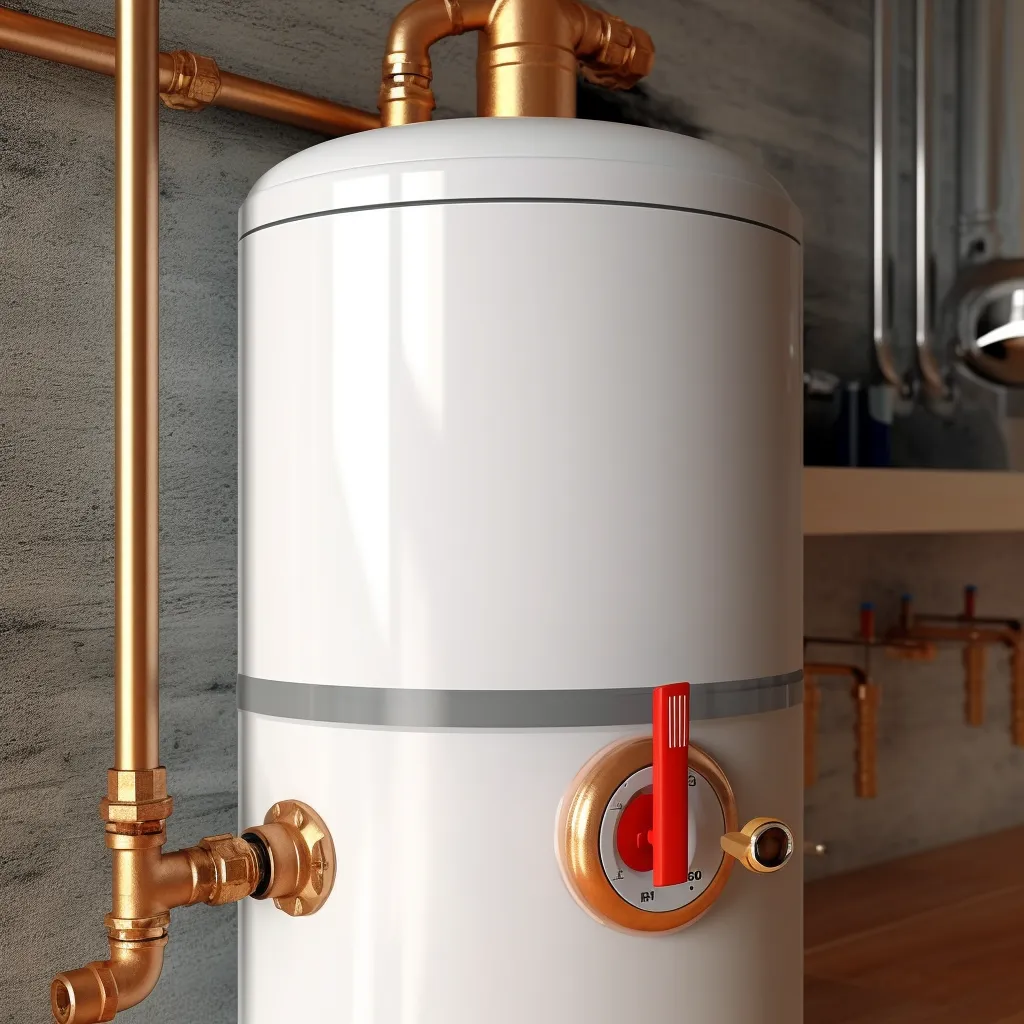
Insufficient or no hot water: If you're experiencing a lack of hot water or it runs out quickly, there may be a problem with the heating element, thermostat, or other internal components that require repair.
Inconsistent water temperature: Fluctuating water temperatures, where it goes from hot to cold or vice versa during usage, could indicate an issue with the controls or mixing valve that needs attention.
Leaks: Any visible leaks around the water heater or from the pipes, valves, or connections could signify a problem that requires immediate repair to prevent further damage.
Discolored or rusty water: If the hot water coming out of your taps appears discolored or has a rusty tint, it may be a sign of corrosion inside the water heater tank, which may necessitate replacement.
Unusual noises: Banging, popping, or rumbling sounds coming from the water heater could indicate sediment buildup or a faulty heating element, which should be addressed to prevent further damage.
Age of the water heater: Water heaters typically have a lifespan of 8-12 years. If your unit is nearing or exceeding this age range and experiencing issues, it may be more cost-effective to replace the entire unit rather than repeatedly repair
If you notice any of these signs, it's important to consult a professional water heater repair service to accurately diagnose the problem and determine whether repair or replacement is the best course of action. Ignoring these signs can lead to further damage, increased energy costs, and inconvenience.

What are the possible causes of water heater malfunctions?
Water heater malfunctions can be caused by various factors such as faulty thermostats, electrical issues, or sediment build-up. While minor issues can be handled by homeowners, a malfunctioning heater may indicate underlying problems with your home's systems.
Regular maintenance and vigilance to warning signs can help you avoid unexpected breakdowns and ensure uninterrupted heating.
It is recommended to schedule regular maintenance checks and address any issues promptly. If you are unsure or if the problem persists, it is advisable to seek the assistance of a professional to diagnose and resolve the underlying causes of the water heater malfunction. This ensures the long-term reliability and efficiency of your water heating system.

Check the temperature setting on your water heater
Checking your water heater temperature is crucial for both efficiency and safety. Setting the temperature too high can risk scalding and energy waste, while setting it too low may result in insufficient hot water. Fortunately, optimizing the temperature is a quick task that ensures your comfort and convenience in the long run. The Department of Energy recommends setting the water heater temperature to 120°F (49°C) for optimal efficiency and safety.


Perform regular
visual inspections
Performing regular visual inspections of your water heater is essential for maintaining its efficiency and identifying potential problems before they worsen. Through routine visual inspections, you can easily spot signs of leaks, corrosion, or any unusual wear and tear. By addressing minor issues promptly, you can prevent them from turning into major complications, ultimately saving you from expensive repairs or the need for a replacement. Furthermore, these inspections provide you with reassurance, knowing that your water heater is operating both safely and efficiently. Make it a habit to include visual inspections as part of your regular home maintenance routine to ensure your water heater remains in optimal condition and enjoys a longer lifespan.
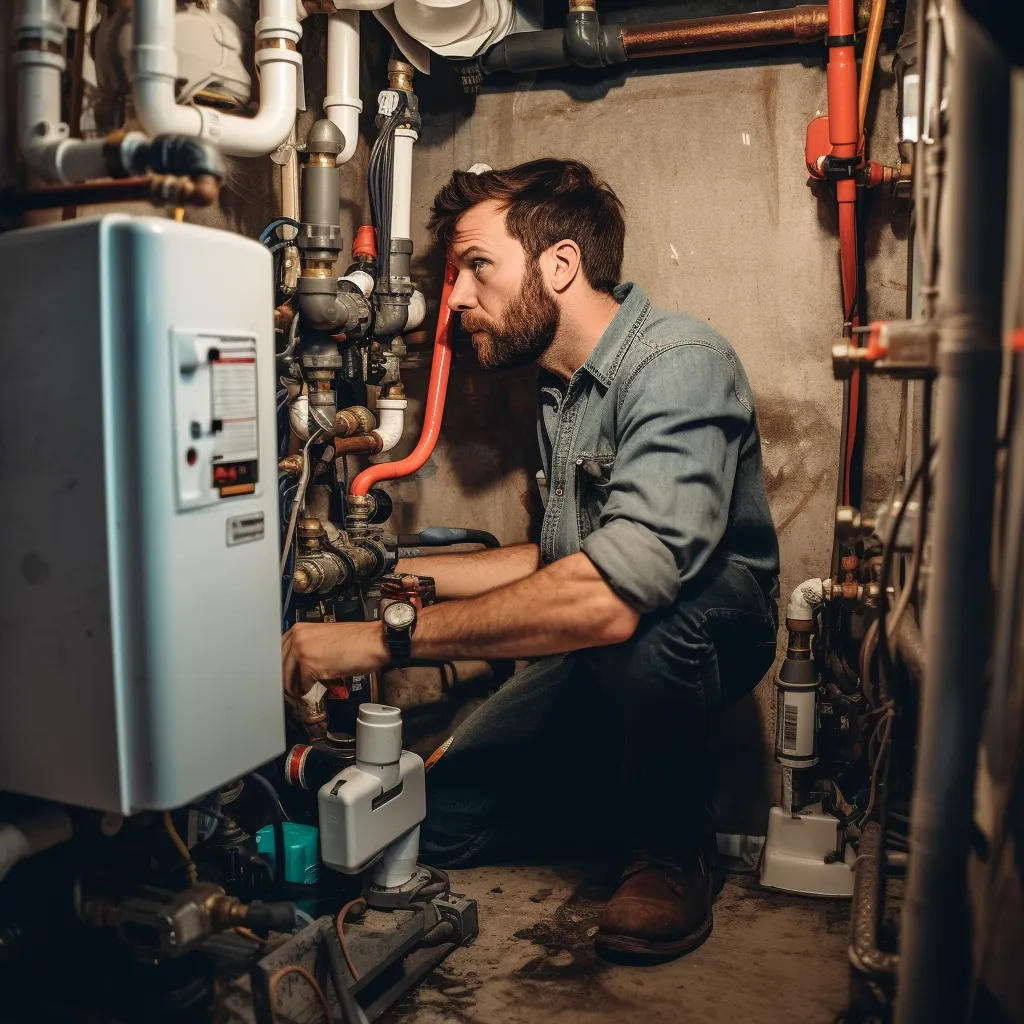
Test the water heater pressure relief valve
to make sure it works
Testing the water heater pressure relief valve on a regular basis is crucial to maintaining the safety and functionality of your water heating system. The purpose of the pressure relief valve is to discharge any excess pressure present in the tank, thereby preventing the risk of explosions or harm to the unit. Periodically testing this valve ensures its proper functioning and ability to alleviate pressure as needed. By performing this straightforward maintenance task, you can steer clear of potentially hazardous circumstances and extend the lifespan of your water heater.

Check for signs of rust and corrosion
around the water heater tank
Performing regular inspections of your water heater tank is essential for preventive maintenance and minimizing the risk of leaks and accidents. Rust and corrosion may not always be visible, but they can lead to significant issues if left unchecked. Give your water heater the care and attention it deserves by prioritizing these inspections.
By proactively identifying and addressing rust or corrosion, you can prevent potential leaks and extend the lifespan of your water heater. However, it is important to remember that handling rust and corrosion requires professional expertise. If you detect any signs of rust or corrosion during your inspection, it is best to rely on the assistance of skilled professionals.
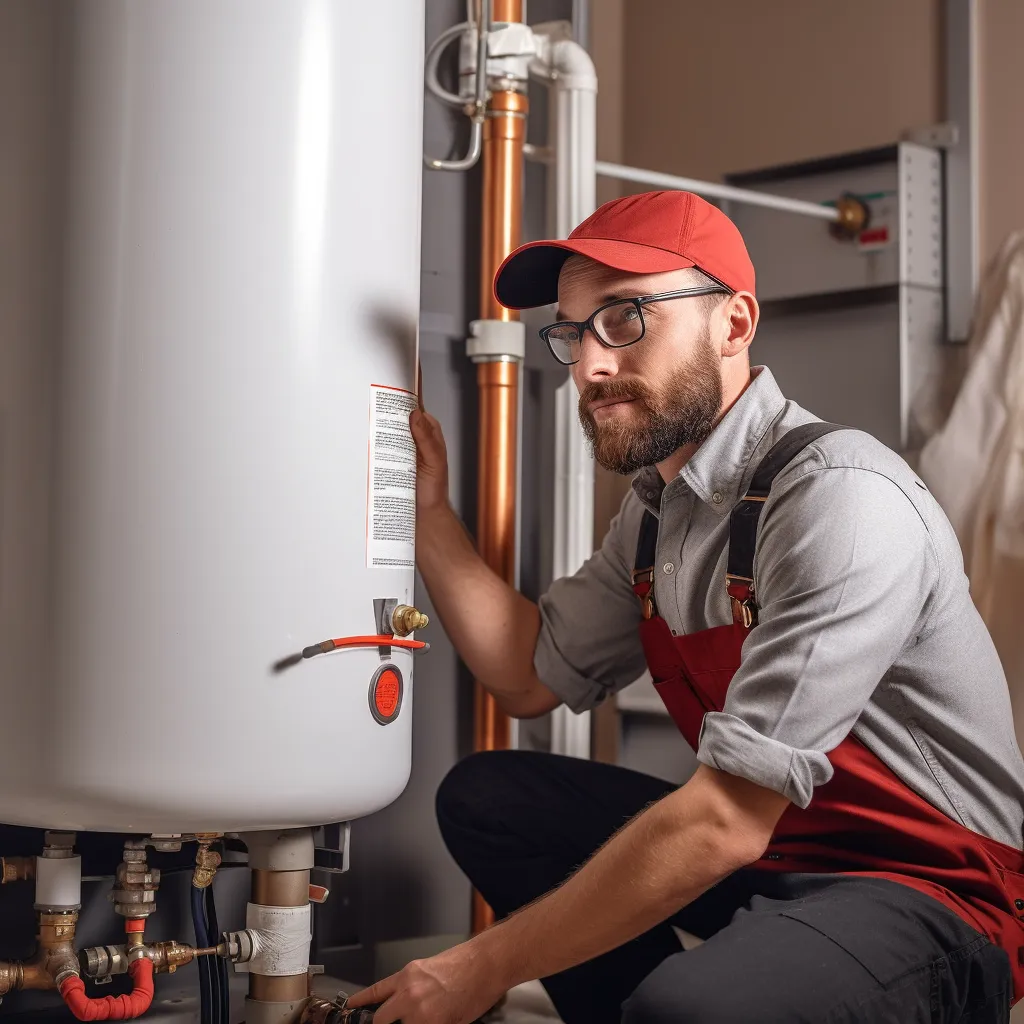
Water heater connections should be tight and secure
Ensuring that your water heater connections are tight and secure is crucial for the safe and efficient operation of your system. Loose or improperly connected fittings can lead to leaks, which can cause water damage and potential hazards in your home. Regularly checking and tightening the connections helps prevent leaks and ensures that the water heater functions properly. It is recommended to inspect the connections periodically and tighten them if necessary. If you are unsure about the proper tightening procedure or if you notice any signs of leakage, it is best to seek the assistance of a professional plumber to ensure that the connections are securely fastened and to address any issues promptly.

Keep the water heater and pipes free of sediment buildup
Keeping your water heater and pipes free of sediment buildup is essential for maintaining the efficiency and longevity of your system. Over time, minerals and debris can accumulate in the tank and pipes, causing blockages and reducing the heater's performance. This can lead to decreased water pressure, slower heating times, and even potential damage to the system.
Regularly flushing the water heater and clearing sediment from the pipes helps to prevent these issues, ensuring optimal water flow and energy efficiency. It is recommended to follow the manufacturer's guidelines for flushing and maintenance or consult a professional plumber for assistance.
By keeping your water heater and pipes free of sediment buildup, you can enjoy reliable hot water and extend the lifespan of your system.


Keep the water heater burner assembly clean
The burner assembly is a critical component of your water heater that needs to be kept clean. Built-up debris and dust can obstruct the burner's flame, leading to inefficient heating and potential damage to the system. By cleaning the burner assembly on a regular basis, you can remove any accumulated dirt and maintain its functionality.
Regular cleaning of the burner assembly provides several benefits. First, it helps prevent the need for expensive repairs that may arise due to clogged burners or damaged components. By removing debris promptly, you can avoid issues that can compromise the overall operation of your water heater.
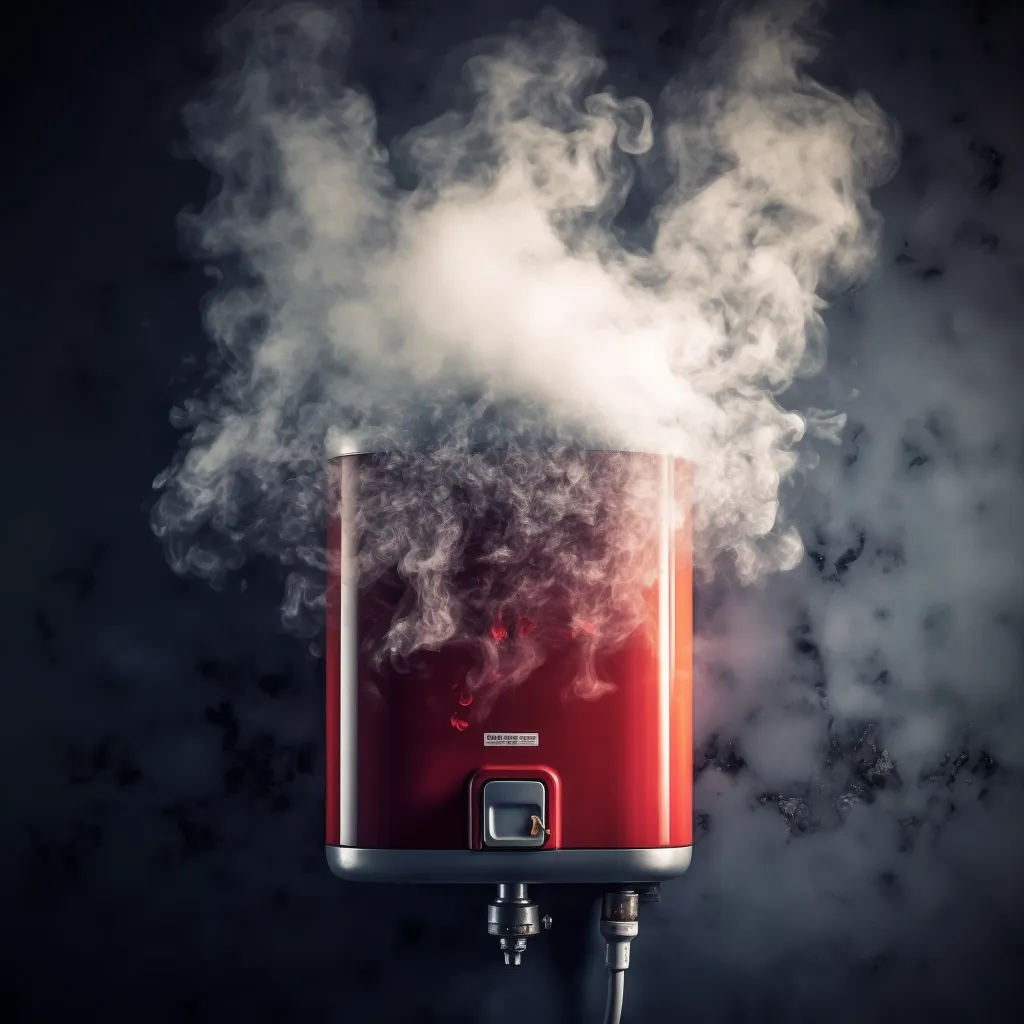
Check out the variety of water heater options available and learn how to keep each type in tip-top shape
Homeowners should be aware of the various types of water heaters available and the specific maintenance requirements for each:
Gas water heaters benefit from an annual tank flushing to eliminate sediment buildup.
Electric heaters may require the replacement of the anode rod, depending on age and condition.
Tankless models should undergo descaling every few years to maintain optimal performance of the heating elements.
Solar heaters should receive an annual check to assess the functionality of panels and other components.
For condensing water heaters, it is essential to conduct annual maintenance checks for corrosion and other potential issues.
Smart heaters may need software updates and firmware changes, while heat pump heaters should undergo an annual inspection to detect any excess heat or concerns.
By familiarizing themselves with different water heater types and understanding their specific maintenance needs, homeowners can prevent potential problems. Taking the time to learn about their system and following proper maintenance practices will extend its lifespan and ensure it continues to operate smoothly.
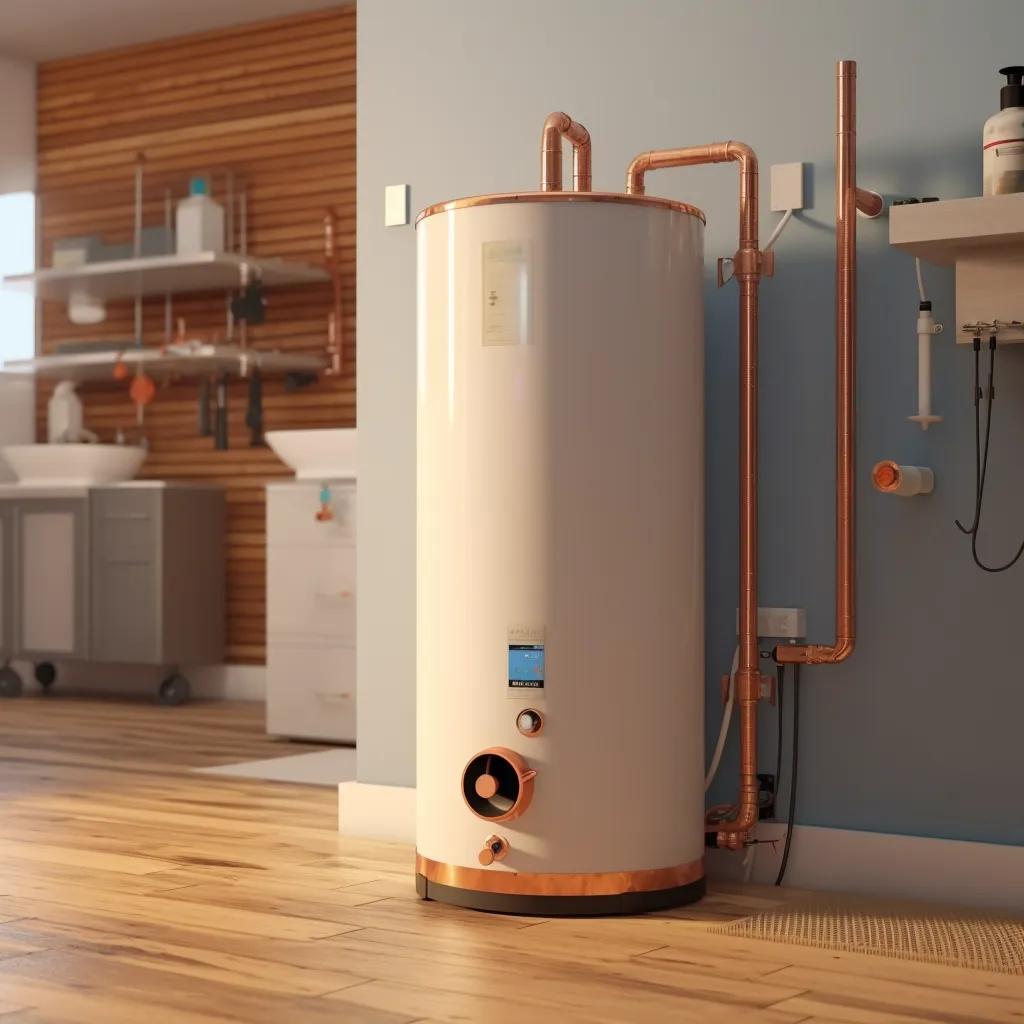
Troubleshooting tips
to help you identify
water heater problems
If you're experiencing issues with your water heater like lack of hot water, temperature problems, strange noises, or leaks, you can try troubleshooting before calling a technician. Check the heating element, verify the thermostat settings, flush out sediment, and inspect for leaks. These simple steps may help you diagnose and potentially resolve the problems, saving you time and money.
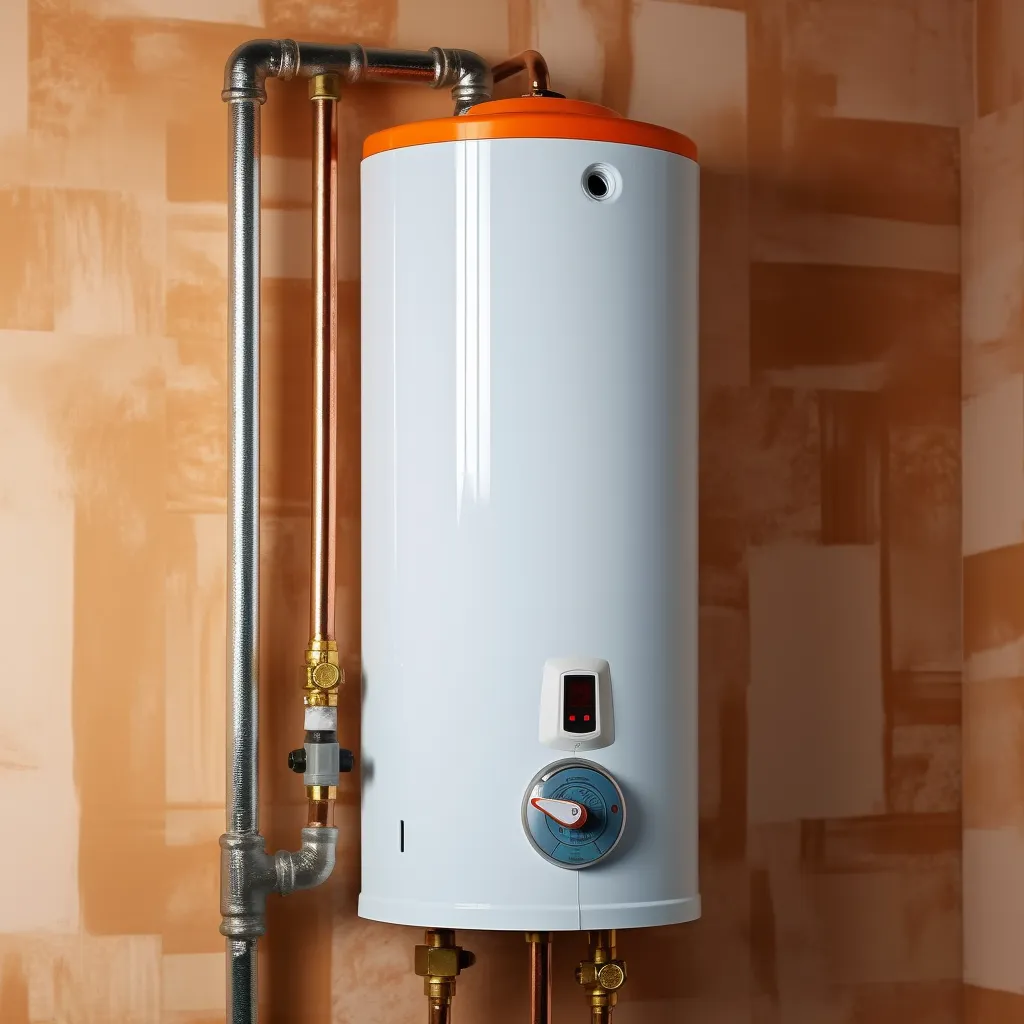
Benefits of hiring a licensed water heater professional
When dealing with a damaged or faulty water heater, it's crucial not to compromise your safety and comfort. Hiring a licensed plumber is the best decision to address the issue effectively. The benefits of relying on a licensed professional include:
Expertise: Licensed plumbers have the necessary knowledge and skills to ensure that the job is done correctly. They possess the expertise to handle water heater installations, inspections, diagnoses, repairs, replacements, and maintenance with precision.
Comprehensive Services: Our team provides comprehensive water heater services. We offer installation of new systems by certified professionals, thorough inspection and diagnosis of existing systems, reliable repairs, efficient replacements, and regular maintenance to keep your water heater in excellent condition.
Troubleshooting and Support: Our experts are well-equipped to provide troubleshooting assistance and problem-solving support. Whether you're facing issues with your water heater or need guidance in selecting the most suitable system for your home, our professionals offer personalized advice to meet your specific needs.

Research is important
Proper water heater maintenance saves time and money. Monitor temperature, pressure, and connections, check for corrosion and sediment buildup, and research any malfunctions. Learn about different water heater types and their maintenance requirements. Consult a licensed professional for verification and expert guidance.
Contact Us
GET IN FULL TOUCH
PHONE: (831) 604-3132
EMAIL:
Gregory@waterheaterseaside.com
Family Home Plumbing Services
Seaside, CA 93955
